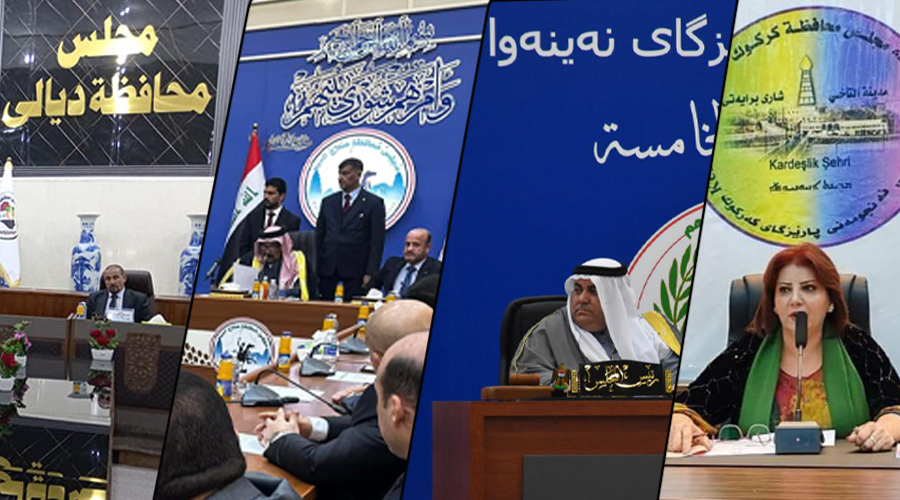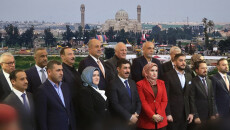Kirkuk provincial council failed to hold its first meeting and Diyala was disrupted in the middle of the negotiations to determine the key provincial positions, but Nineveh remained only on the election of two posts and Salahaddin passed the day smoothly and successfully.
In the past two days, out of 15 Iraqi provinces, only the Maysan provincial council postponed the first meeting and the other 14 provinces were present at the first meeting. Eleven provinces formed new local administrations, and three provinces due to the incomplete quorum and consensus among blocs, did not take any steps.
Salahaddin was the first province in Iraq to settle all posts on February 4 and by late February 5, 2024, local governments were formed in the provinces of Baghdad, Basra, Karbala, Najaf, Anbar, Babylon, Dhiqar, Muthana, Wasit, and Nineveh.
Nineveh has only two posts left to be decided. There were quota problems in Kirkuk, Diyala, and Diwaniya. However, there is no legal provision explaining how long the council can postpone or keep the first meeting open if it fails to elect positions at the first meeting.
Kirkuk: Half by half
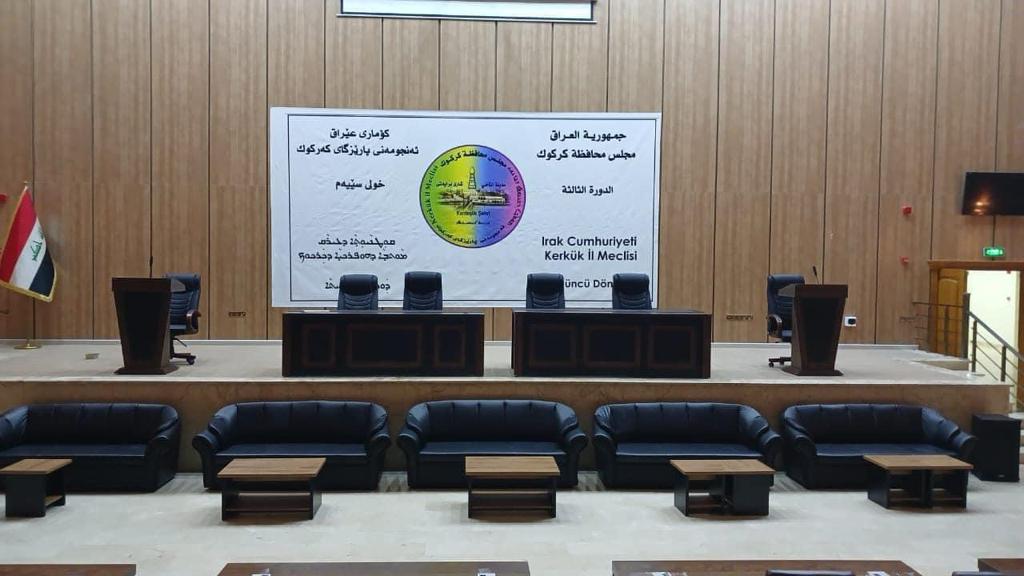
Only eight out of 16 members of the new Kirkuk provincial council were present at the first meeting on Monday.
"After two hours of waiting, no members of the council from both the Arab and Turkmen communities were present, which led to the postponement of the session due to lack of quorum," Parwin Fatih, the oldest member of the council, said on Facebook.
The first meeting was attended by five members of the Patrioic Union of Kurdistan PUK and two members of the council from the Kurdistan Democratic Party (KDP) faction, and the only member quota seat for the Christian community from the Babylon list.
According to the law, nine out of 16 members of the Kirkuk council must be present to convene and elect local government posts.
Raad Salih, a member of the Kirkuk provincial council from the leadership list, told KirkukNow earlier that they would not participate in the first meeting as an Arab faction.
The United Arab faction has six seats, including three seats of the Arab coalition led by Rakan Juburi, the current acting governor of Kirkuk, two seats of the leadership list, and the seat of the Arab coalition.
The Iraqi Turkmen Front ITF which has two seats has unilaterally announced a draft for the formation of a local government, calling for an exchange of senior positions among the ethnic groups.
Sawsan Abdulwahid, a member of the Kirkuk provincial council from the Turkmen Front list, told KirkukNow that they will not participate in the first meeting of the council due to the lack of political consensus and disagreement among the political parties.
The northern, oil-rich city of Kirkuk, is home to about 1.7 million Kurds, Turkmen and Arabs, according to the Erbil-based Kurdistan Regional Government KRG figures in 2018. Located 238 kilometers north of Baghdad, Kirkuk is an ethnically mixed province and has long been at the center of disputes between the federal government in Baghdad and the KRG.
The highest legislative and supervisory authority within the boundaries of the governorate administration shall be with the Council, which has the right to issue internal laws and instructions for managing the affairs of the governorate, formulate the general policy of the governorate, discuss and approve the governorate’s budget and project plans.
There is no other option in Kirkuk except an agreement
Without the participation of Arabs, Kurds, Turkmen, and Christians together, the new local administration of Kirkuk will not be formed. Whatever the results of the provincial council elections, as stated in the provincial council elections law, power will be distributed according to fair representation.
"There is no other way but to reach an agreement," Hassan Majid, head of the KDP faction, told reporters.
The Kurdish, Arab, and Turkmen communities are demanding the governor's post, a position run by the Kurds for years till it was retaken by the Arab community six years ago.
Rebwar Taha, the leader of the Kirkuk coalition faction, said in a statement that the council session has been postponed until all parties reach an agreement.
Since 2003, 32% of the administrative posts in Kirkuk have been allocated to Kurds, Arabs, and Turkmens, and 4% to Christians, based on a project by Jalal Talabani, the former Iraqi President, and the late secretary of PUK. The project was agreed upon in July 2009 by the Kirkuk Provincial Council.
According to the 2009 agreement signed by the three main communities of Kirkuk and Christians in the Kirkuk provincial council, the post of governor was for the Kurds, the deputy governor for the Arabs, and the speaker of the provincial council for the Turkmen. Each component fills in 32% of the key local position while 4% goes to the Christians.
However, the agreement was implemented only for the posts of governor, deputy governor, and speaker of the council and did not extend to the minor posts.
Nineveh reached the end of the road
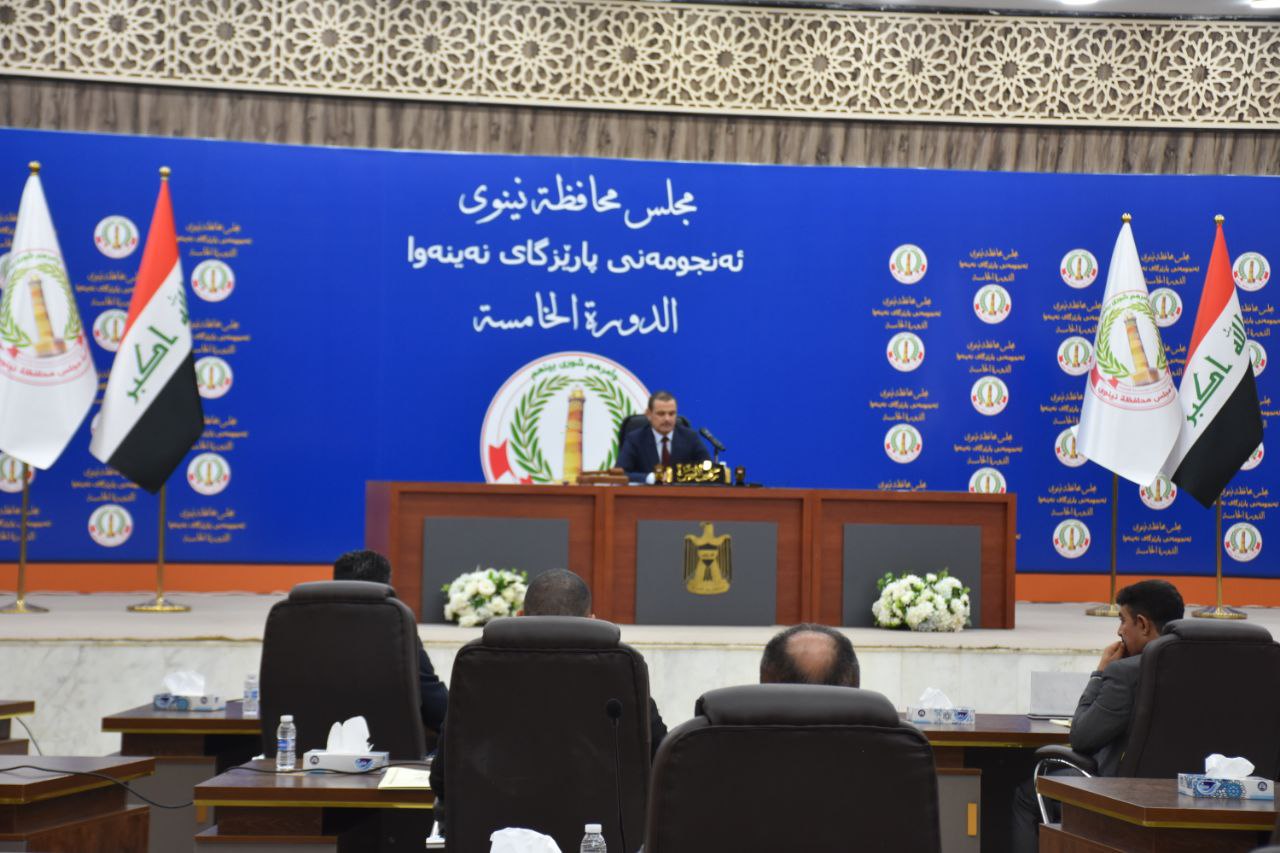
The first meeting of the Nineveh provincial council, February 5, 2024. Ahmad Bala
The Nineveh provincial council, in its first meeting, unanimously laid the foundations of the local government and established the administration, and only two deputies for the governor to be elected.
The meeting was scheduled to start at 2 pm on February 5th but was postponed to 3 pm due to the absence of several factions, including the KDP faction which decided to participate at 3 pm.
Many security forces gathered around the council building, and even when the council meeting began, several members of the security forces, in military uniforms came into the meeting hall.
Ahmad Hassoud of the National Covenant faction was elected speaker of the council. This is according to the agreement of the Unified Nineveh (Sunni) faction with the National Alliance faction and the KDP, which all have 23 seats in the council.
The Unified Nineveh (13 seats) consists of six Sunni Arab parties and coalitions, while the National Alliance, known as a coalition of several Shiite and Sunni forces, has three seats.
The deputy speaker was Mohammed Abdullah Juburi, who was elected by a majority of votes as the candidate of the Nineveh for its People, which is part of the Unified Nineveh and has five seats.
There is no quarrel over the first deputy governor of Nineveh allocated for the KDP
Ahmad Nazim Dubardani, a member of the Nineveh provincial council from the KDP list, told KirkukNow that the council chairman goes to the pro-Iran paramilitary of the Popular Mobilization Forces PMF known as Hashd Shaabi and his deputy is a Sunni Arab.
He says the current composition of the council has been divided into three main parts: Sunnis with 13 seats, the Coordinative Framework (Shiites) with 12 seats, and the KDP with four seats.
Abdul Qadir Dakhil, who has been acting governor of Nineveh for nearly three months, was re-elected by a majority. He is not on any list but is counted on the Sunnis who voted for him for being close to Najm Juburi, the former governor of Nineveh.
According to the agreement between the parties, the post of first deputy governor was for the KDP and their candidate Sirwan Rojbayani. The first session was postponed for a while, then resumed, however, there was no consensus, and could not appoint the two deputies of the governor.
"There is no problem with the first deputy, which is the KDP’s share. The problem is with the deputy governor for technical affairs." Dubardani said They had a candidate, while the Shiite coordination framework nominated another candidate.
"If the Sunnis had one candidate, we would vote for him. That means the problem is more within the Sunnis," he said, adding that an attempt was made to elect the two deputy governors secretly.
The Kurds have six seats in the current provincial council of Nineveh (four for the KDP and two for the PUK) out of 29 seats, so they have only the post of the first deputy governor, while they previously had a council speaker and deputy governor.
Diyala held a half-meeting
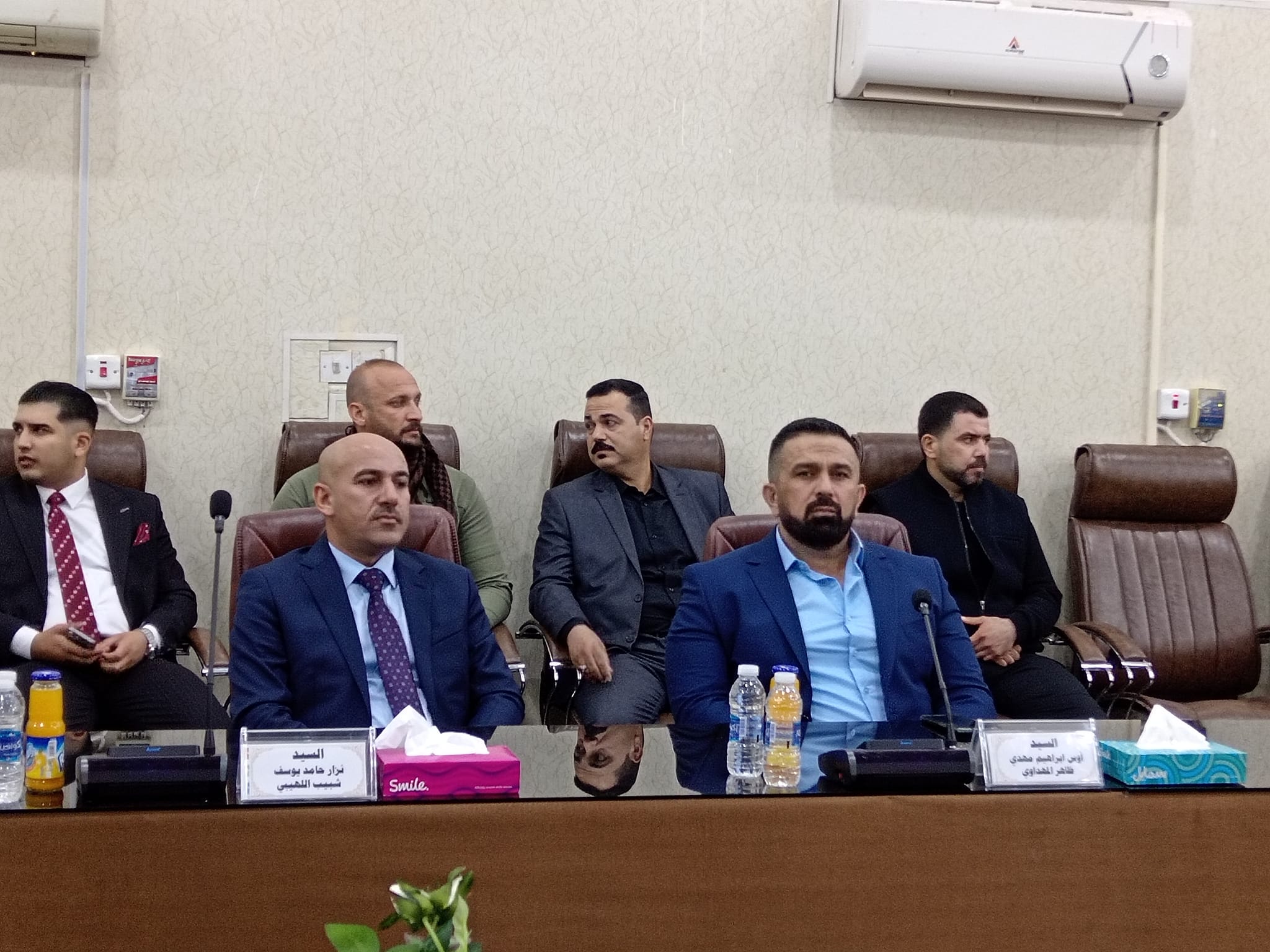
First meeting of the new provincial council, Diyala, February 5, 2024. Media of Diyala Provincial Council
The Diyala Provincial Council met for more than four hours on Monday and failed to agree on the election of the council speaker and deputy speaker.
The meeting was divided into two parts. In the first part, which was attended by all 15 members of the council, after much debate, two candidates were nominated for the speaker of the council, but none of them could win an absolute majority.
A source in the council anonymously told KirkukNow that there was fierce competition for the council post between the two candidates, Omar Kirwi, from the Siyada list, and Nizar Lahebi, from the Taqadum list, none of whom could win.
Debate and disagreement between the factions of the council, especially over the withdrawal of one of the candidates had no results, so half of the members skipped the second round of the council meeting and due to an incomplete quorum, the session remained open indefinitely.
Salahaddin was the first
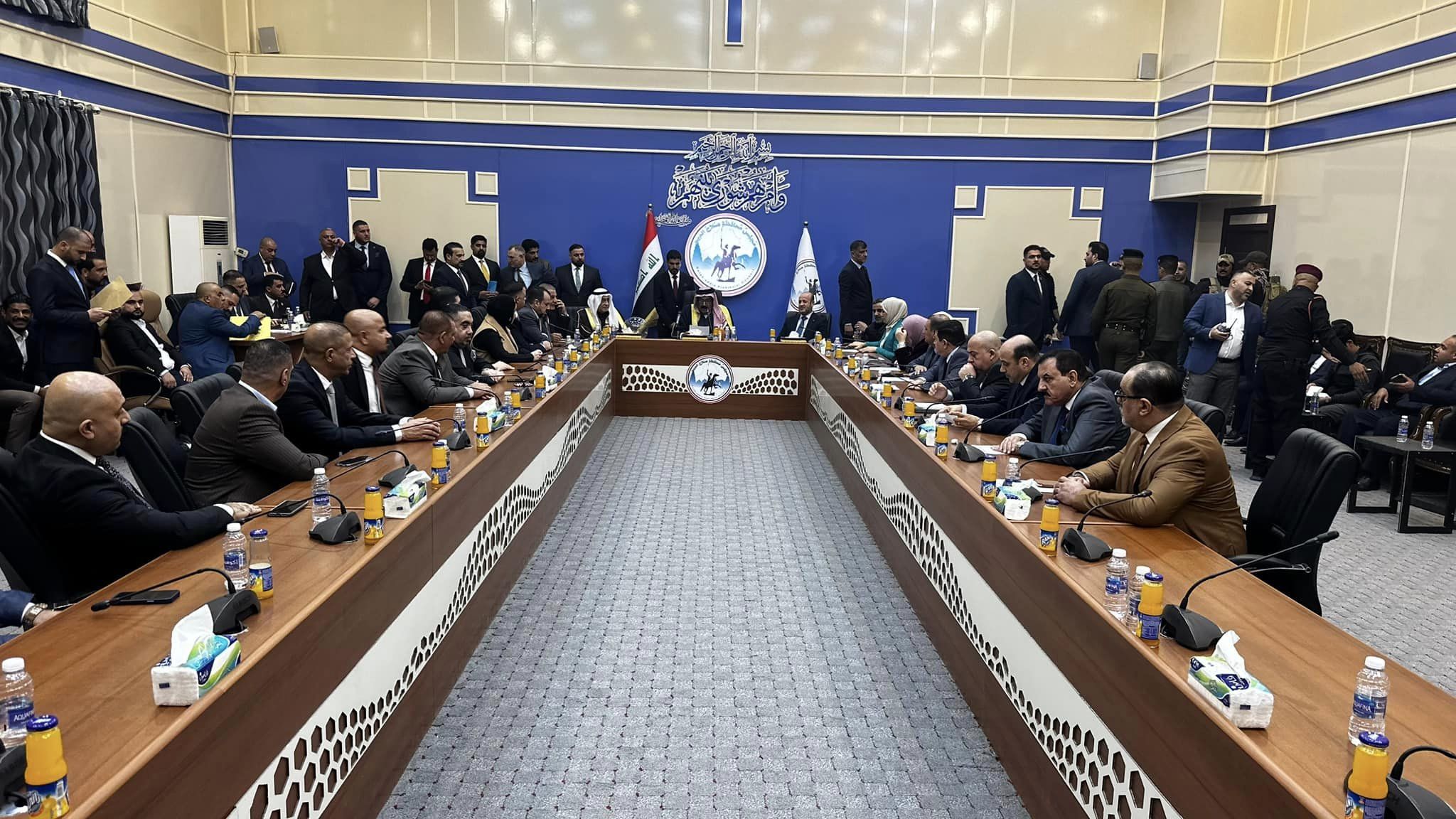
The first meeting of the new provincial council, Salahaddin, February 4, 2024. Media of Salahaddin Provincial Council
The most problem-free provincial council in Iraq was Salahaddin, which met as the first council on February 4 and formed a local government within hours.
According to the press office of the Salahaddin Provincial Council, the governor and two deputies, as well as the speaker of the provincial council and deputy have been elected.
Ahmad Abdullah Juburi, also known as Abu Mazen, a Sunni figure and the secretary general of the Jamahir al-Watania party, has been elected as the new governor of Salahaddin. His party won four of the 15 seats in the province in a coalition.
The Jamahir al-Watania coalition, which included several Sunni Arab and Kurdish parties, won the election and formed a local government with several other Sunni parties, including the Sayada and Hasm coalitions.
Ali Sayed Adel was elected as the speaker of the provincial council and Mohammed Hassan Atiya as the deputy speaker.
According to the agreement, the governor will have two deputies, the first deputy for administrative affairs and the second deputy for technical affairs.
The elections for the new Iraqi provincial councils without the Kurdistan Region were held on December 18, 2023, after four years of legal vacuum, as parliament ended the term of the previous provincial councils at the end of 2019 since they were elected in 2013 except for Kirkuk’s which has been elected once back in 2005.

